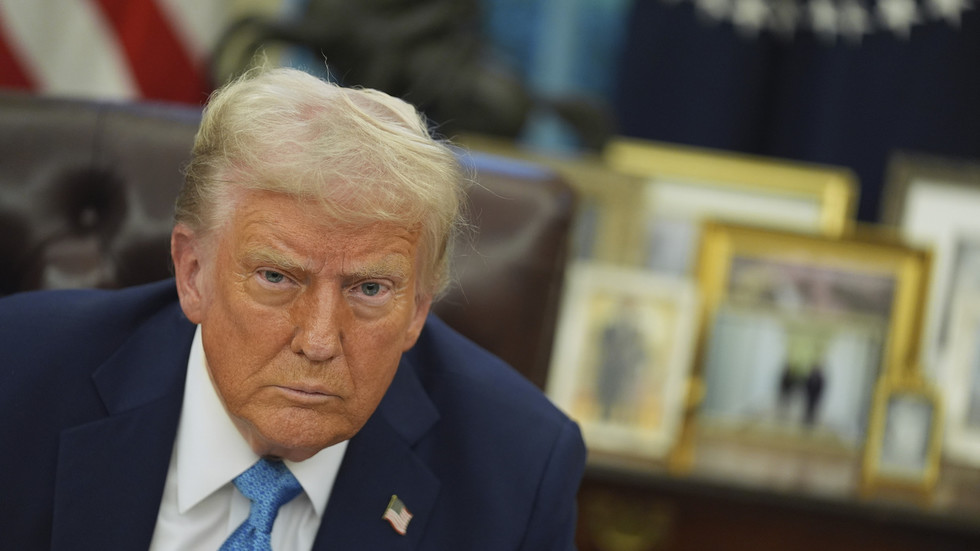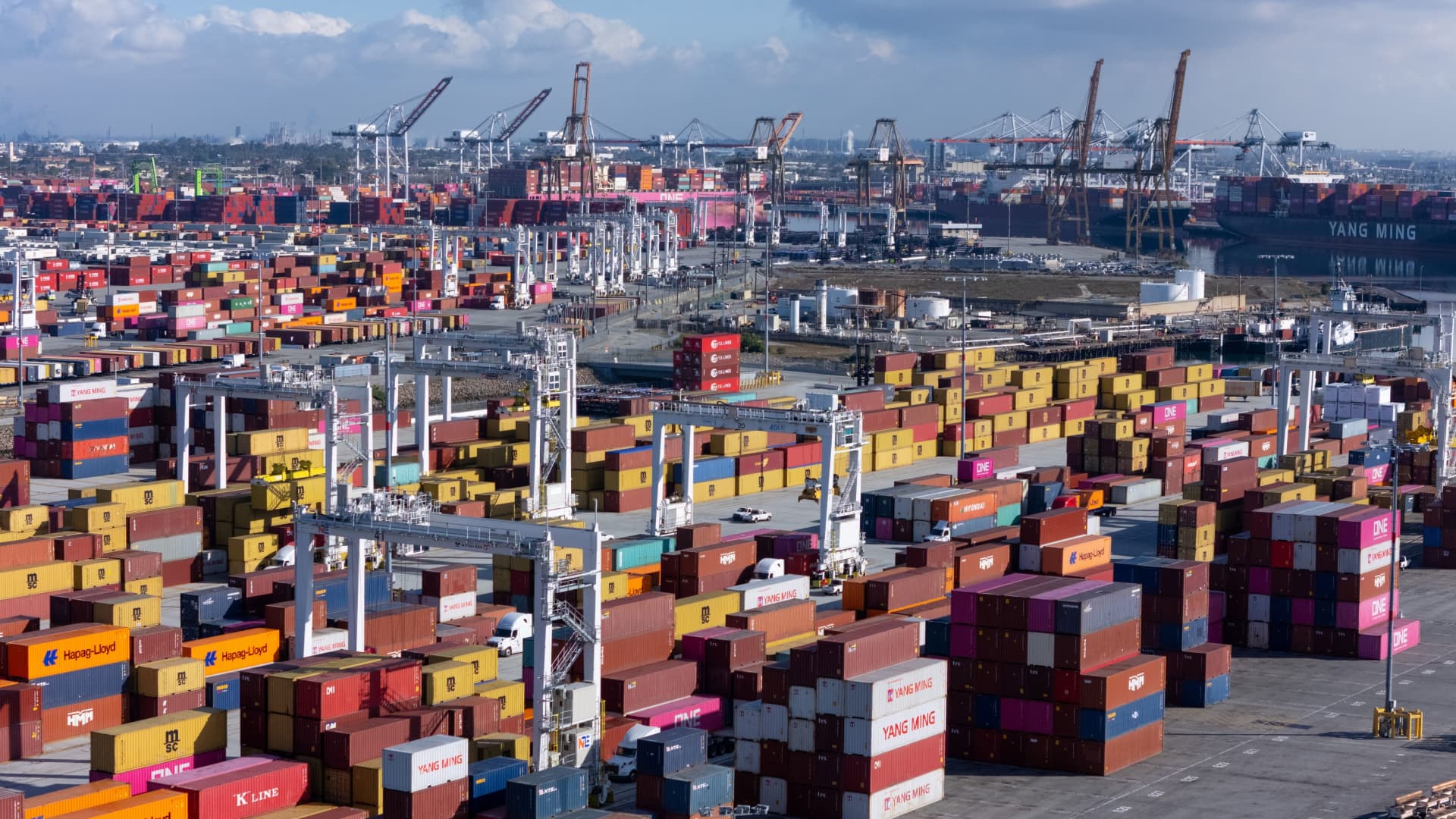Trump’s Bold Promise: Tariffs on the EU Hang in the Balance
In a striking declaration, former President Donald Trump has reignited discussions about trade policies by committing to the imposition of tariffs on European goods. This bold promise has stirred a myriad of reactions, with implications that stretch far beyond U.S.-EU relations and into the broader global economy. As tensions rise, it’s crucial to explore what this means for international trade dynamics and how it could reshape economic interactions between the United States and Europe.
The Context of Trump’s Tariff Threat
Trump’s approach towards trade has consistently been characterized by a confrontational stance, particularly against longstanding allies in Europe. His administration previously implemented tariffs on steel and aluminum imports from the EU, arguing that they were necessary for national security. This latest promise to impose further tariffs is seen as a continuation of that strategy, aimed at correcting what he perceives as unfair trade practices.
Many European nations have expressed concern over these potential tariffs, which could target a wide array of products, from automobiles to agricultural goods. The stakes are high, as the EU is one of the largest trading partners of the United States, accounting for nearly $1 trillion in annual trade. The repercussions of a tariff increase could ripple through global markets, affecting not just the U.S. and EU, but economies worldwide.
Potential Economic Implications
Imposing tariffs on European goods could have several significant economic implications:
- Increased Prices for Consumers: Tariffs typically lead to higher prices for imported goods. American consumers might see increased costs for European products, from luxury items to everyday goods.
- Retaliation from the EU: The EU has a history of responding to tariffs with countermeasures. A tit-for-tat trade war could ensue, ultimately harming businesses and consumers on both sides of the Atlantic.
- Impact on Global Supply Chains: Many industries rely on intricate global supply chains. Tariffs could disrupt these networks, forcing companies to reassess their sourcing strategies and potentially leading to job losses.
- Economic Growth Slowdown: Increased tariffs can dampen consumer spending and business investment, which are critical drivers of economic growth. A slowdown could have lasting effects on the U.S. economy.
The Political Landscape
Trump’s bold promise comes at a time when U.S.-EU relations are already strained. Issues ranging from digital taxation to climate policies have created friction. Additionally, the geopolitical landscape has shifted with the rise of China as a dominant economic player, prompting the U.S. and EU to reassess their alliances and trade strategies.
Supporters of Trump’s tariffs argue that they are necessary to protect American jobs and industries from unfair competition. They believe that by taking a hardline stance, the U.S. can negotiate better trade terms with the EU. Conversely, critics warn that such an approach could alienate allies and drive them closer to adversarial nations, undermining long-standing alliances.
Exploring Alternatives to Tariffs
While tariffs might seem like a straightforward solution to trade grievances, there are alternative approaches that could foster better relations without the risk of escalating tensions:
- Negotiated Trade Agreements: Instead of imposing tariffs, the U.S. could pursue negotiations to amend existing trade agreements, addressing specific grievances while maintaining open lines of communication.
- Collaborative Frameworks: Establishing frameworks for collaboration on trade issues, such as addressing subsidies or regulatory barriers, could yield more sustainable solutions.
- Engagement in Multilateral Forums: Participating in international trade organizations and discussions can help build consensus and find common ground on trade issues.
Long-Term Consequences for U.S.-EU Relations
The long-term consequences of Trump’s proposed tariffs could redefine U.S.-EU relations. If tariffs are implemented, they may lead to a cooling of diplomatic ties and increased isolationism. This could hinder cooperation on pressing global issues like climate change, security, and collective economic stability.
On the flip side, if the U.S. and EU can navigate these challenges and find a mutual understanding, it could lead to a more robust economic partnership that benefits both parties. Strengthening ties could involve joint initiatives in technology, green energy, and other sectors that are essential for future growth.
Public Sentiment and Its Influence
Public sentiment plays a crucial role in shaping trade policies. As Americans grapple with rising inflation and economic uncertainty, the imposition of tariffs may be viewed with skepticism. Voters often prioritize job security and economic stability, which could lead to backlash against tariff policies that threaten to increase costs.
Moreover, the European public has also shown resistance to increased tariffs, particularly in light of the economic recovery following the pandemic. A united front in opposition to tariffs could pressure both U.S. and EU policymakers to seek alternative solutions.
Conclusion: The Path Forward
Trump’s bold promise to impose tariffs on European goods has sparked a renewed debate over trade policies and international relations. While the immediate implications may seem daunting, this moment also presents an opportunity for dialogue and negotiation. By exploring alternatives to tariffs and fostering collaboration, both the U.S. and EU can work toward a future where trade policies promote growth and stability rather than division.
As we look to the future, the outcome of this situation remains uncertain. However, one thing is clear: the global economy is interconnected, and decisions made today will have lasting impacts on generations to come. It is crucial for leaders on both sides of the Atlantic to prioritize diplomacy and seek solutions that benefit not just their nations, but the world at large.
See more CCTV News Daily



